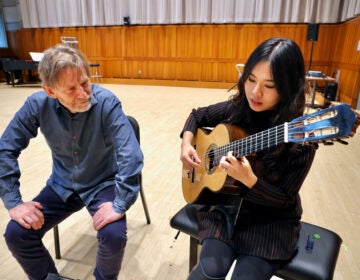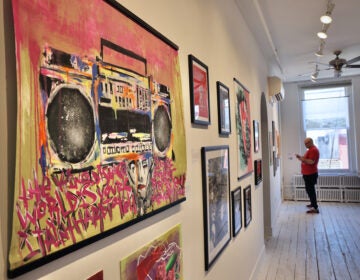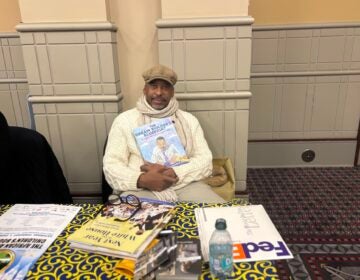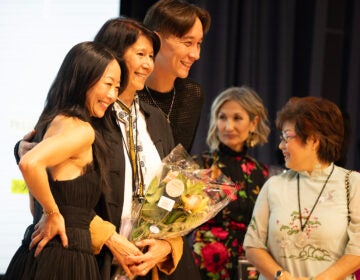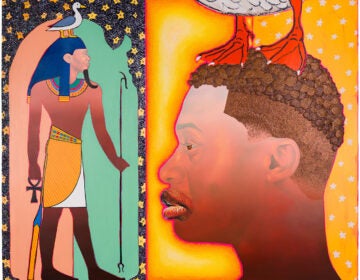Philadelphia Chamber Music Society to stage festival about dementia
Arts on the Mind seeks to foster connection and meaning for people living with dementia.
Listen 1:48
A scene from a previous performance of "A Song by Mahler." (Photo by Emerson, courtesy of the Philadelphia Chamber Music Society)
From Philly and the Pa. suburbs to South Jersey and Delaware, what would you like WHYY News to cover? Let us know!
In May, the Philadelphia Chamber Music Society will stage a new piece of theatrical music. Marc Neikrug‘s “A Song by Mahler” is about a married couple — a professional singer and her accompanist — whose relationship is tested by early-onset Alzheimer’s disease.
“Mahler” takes on the difficult topic of living with dementia. As the American population is skewing more and more elderly, it’s a topic that may increasingly hit home.
“We need to be more comfortable with the uncomfortable,” said Miles Cohen, artistic director of PCMS. “It’s so difficult to watch. It’s so challenging. It’s so uncomfortable. The more we can talk about it and the more we can find a way to make it less foreign to us, the better we can feel about it.”
That’s why Cohen is starting three months in advance to get people primed for “A Song by Mahler.” PCMS is hosting events that explain, showcase and celebrate the role music and the arts can play in the lives of people with dementia.
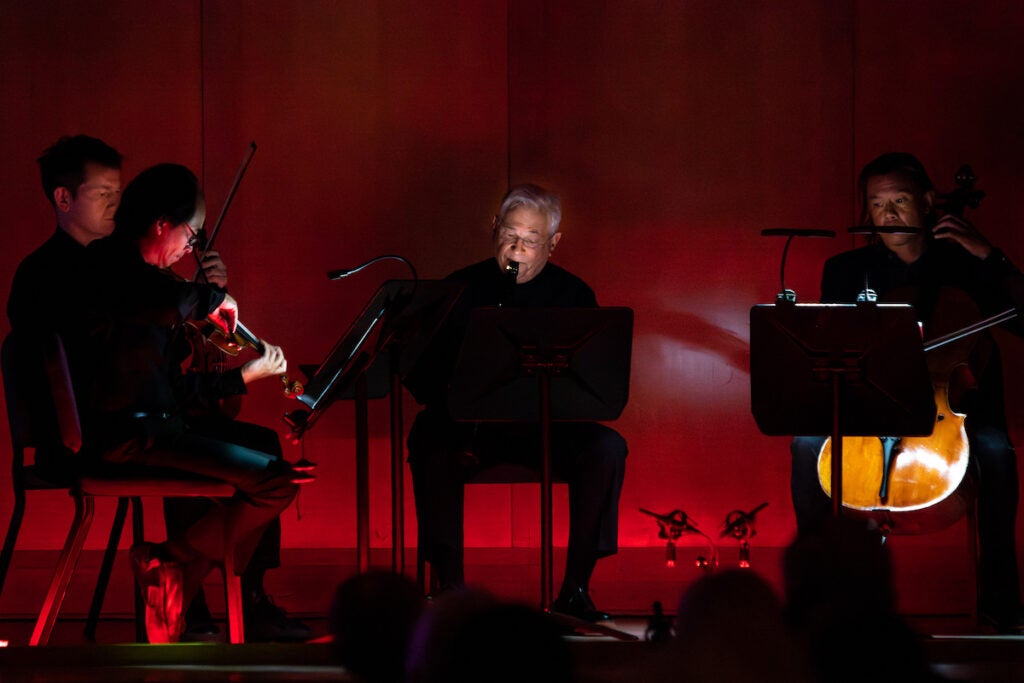
The Arts on the Mind festival launches this Wednesday at the Franklin Institute with a walk-through of its “Your Brain” exhibition wing. It will be followed by a discussion between Dr. Jason Karlawish of the Penn Memory Center and Anne Basting, a theater artist who was awarded a Macarthur “genius” Fellowship for her work activating creativity in people with dementia and their caregivers.
Other events include a showcase of creative activities that ARTZ Philadelphia tailors for people with dementia and their caregivers; a screening of the documentary “Wisdom Gone Wild,” about filmmaker Rea Tajiri’s relationship with her mother as she developed dementia; an interview with Dasha Kiper, author of “Travelers to Unimaginable Lands,” with Dr. Karlawish at the Free Library; and panel discussions.
“We have a festival. Festival, of course, is a weird word. It makes it sound like something joyous,” Cohen said. “But the truth of the matter is, there are lots of people who have invested in this in a deeply meaningful way. We’re going to get a nice mix between those that are fans of the Chamber Music Society, and caretakers.”
Cohen got help producing the festival from Dr. Karlawish at the Penn Memory Center, who is personally participating in at least three events. He said he was eager to partner with the Chamber Music Society to highlight music’s role in the care of people with dementia.
“It intersects very well with emerging insights coming from the neurosciences, clinical practice, and the arts,” he said. “The arts aren’t simply entertainment to keep people occupied who otherwise struggle to figure out what to do all day when they’re struggling with cognitive impairment. The arts have a role in care.”
The Franklin Institute’s Jayatri Das uses a Franklin exhibit called “Turn Off Your Perception” to gain insight into what music does to the brain. A sculptural bust with an open cranium has blue buttons at specific points on the surface of the exposed brain. These buttons turn off perception functions like vision, hearing and language.
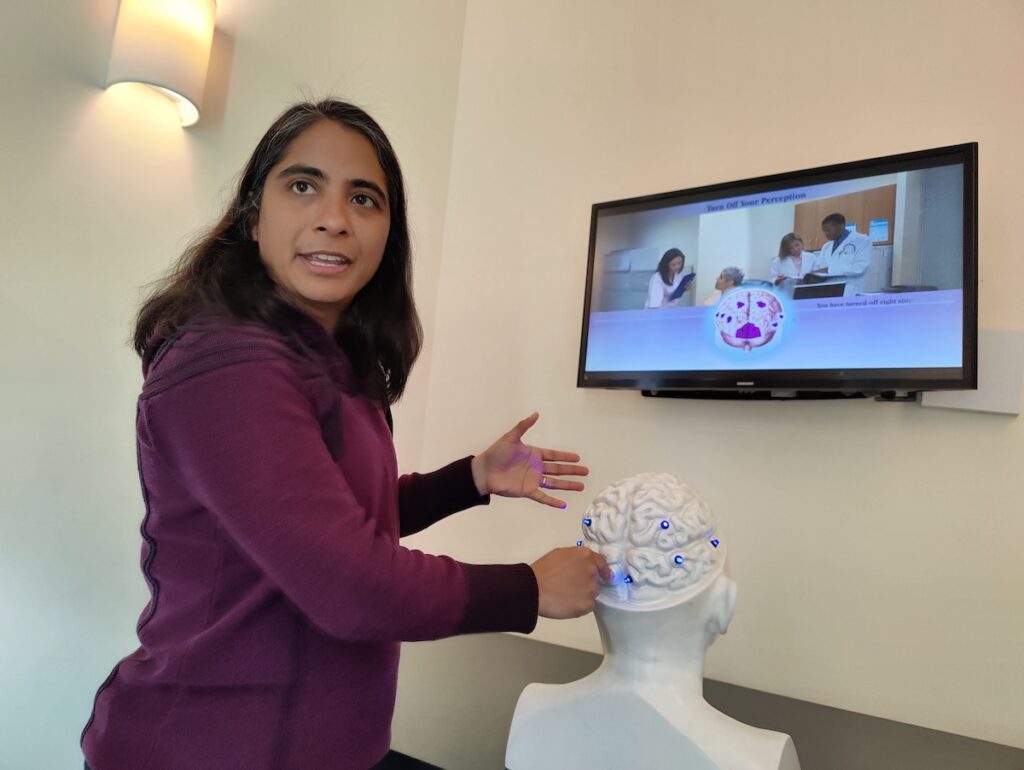
As Das turns off portions of the brain, a looping video of a doctor’s office visit becomes manipulated in real-time: The left side goes dark, the sound cuts off, the scene becomes blurry or speech becomes garbled. Multiple buttons can be pressed to create a facsimile of a degenerating brain.
The model demonstrates how complicated and multifaceted perception is across different portions of the brain. But Das says music is uniquely capable of engaging several distinct brain functions simultaneously.
“What we see with music is that those intact parts of the brain can serve as connections to parts that might be damaged,” she said. “Things like language, things like memory. When you play music, that builds bridges between music and those functions that might otherwise seem lost.”
In addition to making internal connections in an individual’s brain, music has another benefit: It socializes people who may otherwise be closed off by their condition. Karlawish said much clinical research is using the arts to improve care of patients with dementia by fostering a sense of connection and meaning.
“The human mind isn’t just confined to the skull in the skin,” he said. “The human mind functions because it extends itself out into the environment around that mind. That’s what allows a human mind to flourish. All human minds: the well and the not well, persons with and without dementia.”

Karlawish would like to see the Arts on the Mind festival — or something like it — recur regularly in Philadelphia. He says the city already has a critical mass of both arts and scientific communities to pull it off.
Cohen, at the Chamber Music Society, would also like to program events like the Arts on the Mind festival. Leveraging partnerships with nonmusical organizations to engage audiences is critical to the organization’s life.
“The Chamber Music Society, at a very high level, presents world-renowned, small ensembles and soloists in recital. We have done that, and we will continue to do that,” he said. “But there are all kinds of ways to stretch ourselves and make ourselves relevant today, as well as the 300 years of music that existed before today. As we looked at this project, there was a myriad of reasons to say ‘yes’ and so few reasons to say ‘no.’”
“Arts on the Mind” begins Wednesday, March 13 at the Franklin Institute, followed by events on April 15 (ARTZ Philadelphia at the Woodmere Museum), April 21 (a screening of Rea Tajiri’s “Wisdom Gone Wild” at the Philadelphia Film Center), April 30 (author Dasha Kiper at the Free Library), May 13 (a preconcert panel discussion with the creative team behind “A Song by Mahler”) and the May 15 performance by the Chamber Music Society followed by a talk-back with the audience.

Get daily updates from WHYY News!
WHYY is your source for fact-based, in-depth journalism and information. As a nonprofit organization, we rely on financial support from readers like you. Please give today.



